Dementia
What is Dementia?
Dementia is an acquired progressive condition that affects many areas of cognitive function and has a major impact on a person’s ability to communicate with others. Alzheimer’s disease is the most common form of dementia caused by plaques (deposits of protein fragments) in the brain, but there are other forms which affect brain function. Dementia may also appear in persons with Parkinson’s disease or Huntington’s disease or in stroke survivors (vascular dementia).
Although the different types of dementia affect communication profiles in different ways, there are similarities in the way that chronic and progressive deterioration causes loss of brain function and decline in cognitive abilities. Symptoms are mild initially and severe in the later stages of the disease. Early symptoms may not be noticeable because subtle changes in memory, word-finding and confusion are typical in the aging process. Periods of disorientation or forgetfulness are also common.
As the disease progresses, a person will have increasing difficulties in memory, planning, judgement, reasoning, and the ability to carry out complex activities. All of these impact daily functioning and independence. Symptoms will worsen with time until the person is totally unable to look after themselves. Medication can slow the rate of deterioration, but the effects are usually irreversible.
Communication problems are a direct result of the cognitive impairment. A person with dementia will gradually experience problems with all forms of communication – speaking, understanding, reading and writing. This impacts social relationships as the person loses the ability to communicate with others. In the middle and later stages of the disease, communication partners are often frustrated if the person has difficulty with memory of recent events or is unable to following conversational rules like turn-taking or staying on topic. Superficial conversation may still be possible, but as the disease progresses, there will be increasing problems with understanding and what is said is often vague, hard to follow, disjointed or off-topic. In the final stages, the person will often stop talking and show no signs of understanding.
What can professionals do to help?
Individuals with dementia are often referred for speech-language therapy because of problems with communication. Speech-language pathologists (SLPs) play a critical role in screening, assessment, and intervention of speech, language, communication, eating and swallowing skills in adults. An SLP can determine the current levels of these skills and help monitor maintenance or regression of skills. Caregiver training can help facilitate functional communication.
Audiologists are also extremely important to the care of adults with dementia. They assess hearing status and prescribe and fit hearing aids when needed. Hearing loss is common in the elderly as part of the typical aging process, and this significantly impacts the quality of life for someone with dementia.
Audiologists and SLP’s provide information, support and counseling to family members to help maintain social engagement, communication skills and independence. Caring for an individual with dementia takes a heavy physical and emotional toll on family members and caregivers. SLPs and audiologists can help others cope with the progressive effects of the disease and the resulting communication, behavioural and personality changes.
Audiologists and SLPs are important members of the care team and ensure that the individual gets comprehensive, coordinated care.
